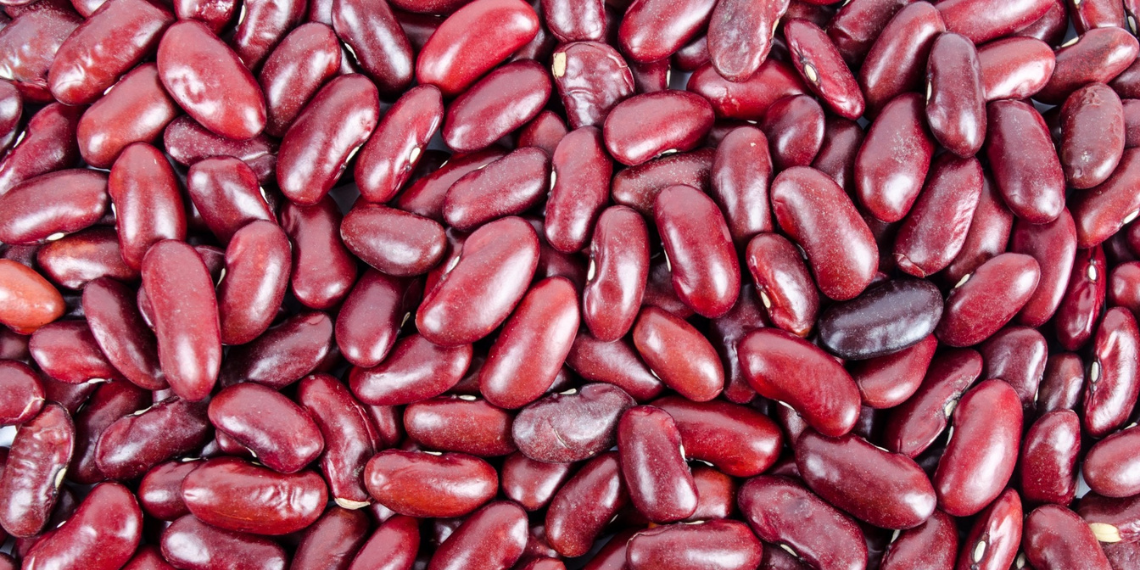Protein Isn’t Everything: How Beans Help Curb Hunger

Approximately one in eight people worldwide are living with obesity, which is associated with cardiovascular disease, diabetes and psychosocial challenges like bullying and discrimination.

Brooke Adams, Zach Ribau, Megan Fluit & Dr. Alison Duncan
Feeling full after eating, scientifically known as “satiety,” is critical for controlling hunger and managing body weight. Recent research from Dr. Alison Duncan and her team in the Department of Human Health Sciences reveals that beans, packed with both protein and fibre, can be just as effective as beef in keeping us feeling full.
Duncan, a registered dietitian and researcher of over 25 years at the University of Guelph, has always been interested in the connections between agriculture, food, and human health. Her research emphasizes how foods like beans, chickpeas and lentils can help prevent chronic disease and enhance quality of life, particularly in aging populations.
“I’m interested in all stages of life, but the proportion of older adults is increasing,” says Duncan. “As our population ages, finding dietary strategies to maintain health and quality of life becomes increasingly important.”
Recognizing the health concern of obesity in ageing populations, Duncan’s team conducted a study investigating how beans compare to beef in improving satiety in older adults.
In the study, 35 participants — with an average age of 72 years — tried three breakfast meals on separate days: tortillas filled with black beans, red kidney beans or beef. After each meal, the participants rated how full and satisfied they felt and tracked their food intake throughout the day.
Despite beef having more protein, beans performed equally well in making participants feel full.
“Protein gets a lot of attention in dieting discussions, but fibre is often overlooked despite its many health benefits,” Duncan points out. “Protein can come from both animal and plant sources. Beans are a chance to experience that variety and enjoy their health benefits.”
While both animal and plant proteins improve satiety, only plant-based foods include fibre. Consuming fibre is essential for healthy digestion, absorption of other nutrients, and regulating our gut bacteria.
The study’s findings carry significant implications for healthy body weight management. Because they can help manage appetite, beans are an ideal choice for adults aiming to maintain a healthy weight and reduce their risk of obesity-related disease.
When it comes to taste and texture differences between the different protein sources, the study yielded another key insight: although the taste of beef was slightly preferred, bean-based meals were still well-liked, suggesting that tasty recipes could easily make beans a regular favourite at the dinner table.
In addition to health benefits, beans offer other key advantages as well. They are environmentally sustainable, requiring fewer resources to produce than beef, and are extremely budget-friendly — an important consideration for older adults who often live on fixed incomes.
According to Duncan, incorporating more beans into our diet doesn’t have to be difficult. “Hybrid meals combining beans, chickpeas or lentils and smaller meat portions could be a practical and culturally acceptable way to shift towards healthier, plant-based diets,” she says.
“If there’s one key message for people to remember, it’s this: Don’t underestimate the power of dietary fibre! It's essential not just for helping us feel fuller for longer, but it also helps to optimize our overall health,” Duncan concludes.
Why not give beans a chance to prove their power at your next meal? Your health (and our environment) will thank you.
This study was funded by the Ontario Bean Growers.
Read the full study in the Journal of Nutrition.
Read about other CBS Research Highlights.